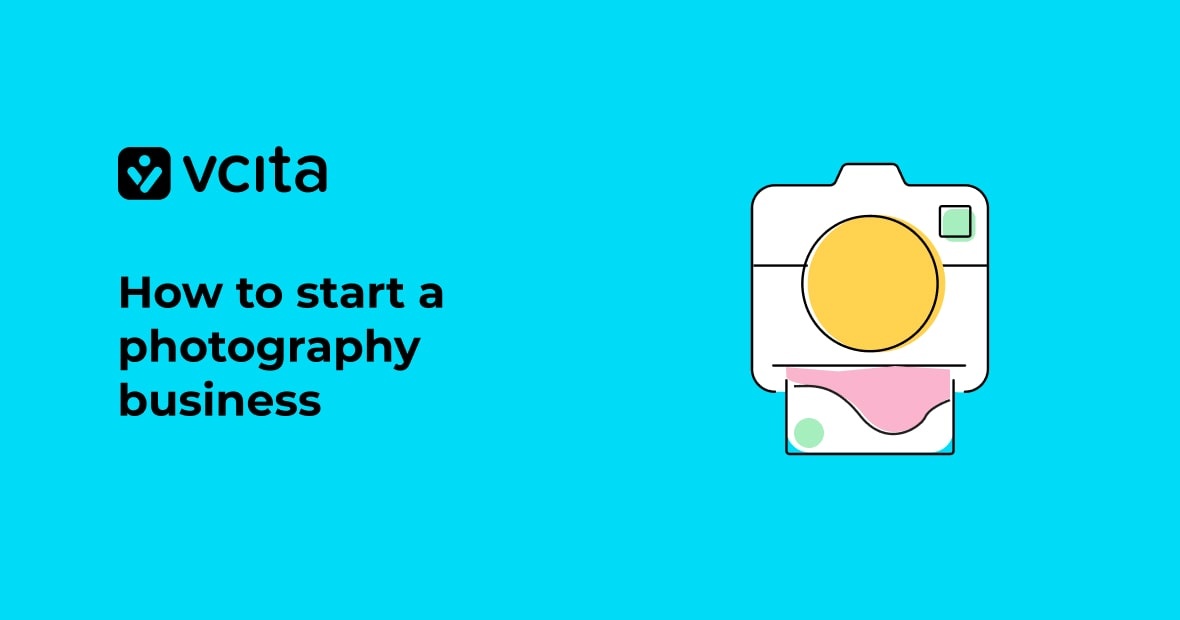As a passionate photographer, you probably have dreams of setting up your own photography business, where you capture stunning shots and share your ideal client’s special memories. But before diving into your photography career, you need to lay the groundwork.
This step-by-step guide covers the photography business basics – from necessary camera gear to marketing strategies, with tips to help you market your business and manage expenses. By the end, you’ll have the tools to turn your passion into a thriving photography business.
Laying the groundwork: registering your photography business and creating a business plan
To get your photography business off the ground, the first thing you need to do is to make it legit. Registering your business establishes you as an official business owner and allows you to open business bank accounts, obtain proper insurance, and handle other administrative tasks.
Choosing a business structure
The business structure you choose depends on your needs and goals. As a sole proprietor, you have minimal paperwork but are personally liable for business debts. An LLC protects you from personal liability, but involves more paperwork and requires annual filings. For larger operations, a corporation may make sense. Consult with a lawyer to determine what’s right for your vision.
Crafting your business plan
A solid business plan is essential for any new business owner. In it, you should outline your business model, identify your ideal clients, and plan effective marketing strategies. Map out the type of photography you want to focus on, estimate your business expenses, and set financial goals. Review and revise your plan regularly as your business evolves.
Setting your rates
Do some research on other professional photographers who operate in your area and offer similar services. Find out how much they charge for different types of photography sessions, to give you a benchmark. You’ll want to charge less if you are just beginning your photography career, but make sure you price high enough to cover your operating costs.
Defining your niche: choosing a photography specialty
Choosing a photography specialty is one of the most important steps in starting a photography business. Do you want to be a wedding photographer, focus on family portraits, or maybe pursue commercial work? As a new business owner, it’s best to focus on one type of photography so you can build your skills and perfect your craft.
Wedding photography, for example, requires tons of experience to master. Portraits require strong interpersonal skills, so that you can quickly build a relationship with your subjects. Think about what subjects or events excite you most as an artist. You might want to explore different options and see what ignites your passion.
Equipping yourself: must-haves for starting a photography business
To start a photography business, you’ll need professional equipment. Invest in a high-quality DSLR or mirrorless camera, ideally with a full-frame sensor, and a selection of versatile lenses. For portraits, a 50mm or 85mm prime lens is ideal. For weddings, a 24-70mm or 70-200mm zoom allows you to capture groups and details. Don’t forget extra batteries, memory cards, a flash, and a sturdy tripod.
Building your portfolio: tips for budding photographers
As a new photography business owner, building a stunning portfolio is key to landing your ideal clients and jumpstarting your photography career. Here are some tips to build a portfolio that will have potential clients lining up.
Focus on one type of photography
Don’t try to be all things to all people, at least not when you’re first starting out. Decide on the type of photography you want to specialize in, like wedding, portrait, or product photography. This will allow you to hone your skills and build a cohesive portfolio in that style.
Invest in good equipment
Having high quality equipment is essential for professional photographers. Save up to invest in a great camera, multiple lenses, lighting equipment, and plenty of memory cards. Your equipment is the foundation for building an impressive portfolio.
Practice and experiment
Take lots of photos to improve your technique and skill. Try different angles, poses, lighting, and editing styles. Get friends and family to pose for you. Practice makes perfect, so keep at it. Review and edit your photos to see what’s working and what you can improve.
Select the best for your portfolio
Once you’ve practiced and are creating photos you’re really proud of, choose 15-30 of your very best photos that showcase your style and talent. Organize them in a simple but elegant way on your website, and update them regularly as you take on new clients and your skills improve.
Encourage subjects with discounted shots
As a new photography business owner, start by offering discounted or free shoots. This is a good way to attract trial customers for photos that you can put in your portfolio.
Attracting clients: marketing and networking strategies for photography businesses
As a new photography business owner, your success depends on finding your ideal clients and attracting them to your services. Here are some key marketing strategies to get your photography career off the ground.
Build an appealing website
In today’s digital age, the first place potential clients will look for a photographer is online. Build a professional website to showcase your work and the types of photography you offer. Include details about your photography services, packages and rates.
Nurture a strong online presence
Establish profiles on social media platforms like Facebook, Tiktok and Instagram and post regularly to increase visibility. Engaging with your followers and potential clients is a great way to market your business.
Promote your portfolio
As a new business owner, your portfolio is your best marketing tool. One of the best ways to attract new clients as a photography business owner is to build an impressive portfolio of your work.
Work with other small business owners
Consider teaming up with other vendors like wedding planners to gain business opportunities. Use social media and your website to feature photos from these sessions to garner more interest from potential clients.
Encourage reviews and referrals
Reach out to past clients for reviews and testimonials to strengthen your credibility. Satisfied clients provide referrals to help you win new business, so provide top-notch service and stunning images.
Network and make personal connections
Attend industry events to connect with fellow photography business owners, wedding planners, and venues. Word-of-mouth referrals and recommendations from other trusted vendors are an excellent way to find new clients.
Get your new photography business off to a flying start
While starting a photography business takes dedication, if you go in with a step by step plan, you’ll be well on your way to becoming a professional photographer in no time. Keep learning, improving your craft and providing outstanding service to your clients. With hard work and persistence, you can turn your passion for photography into a thriving business.




























